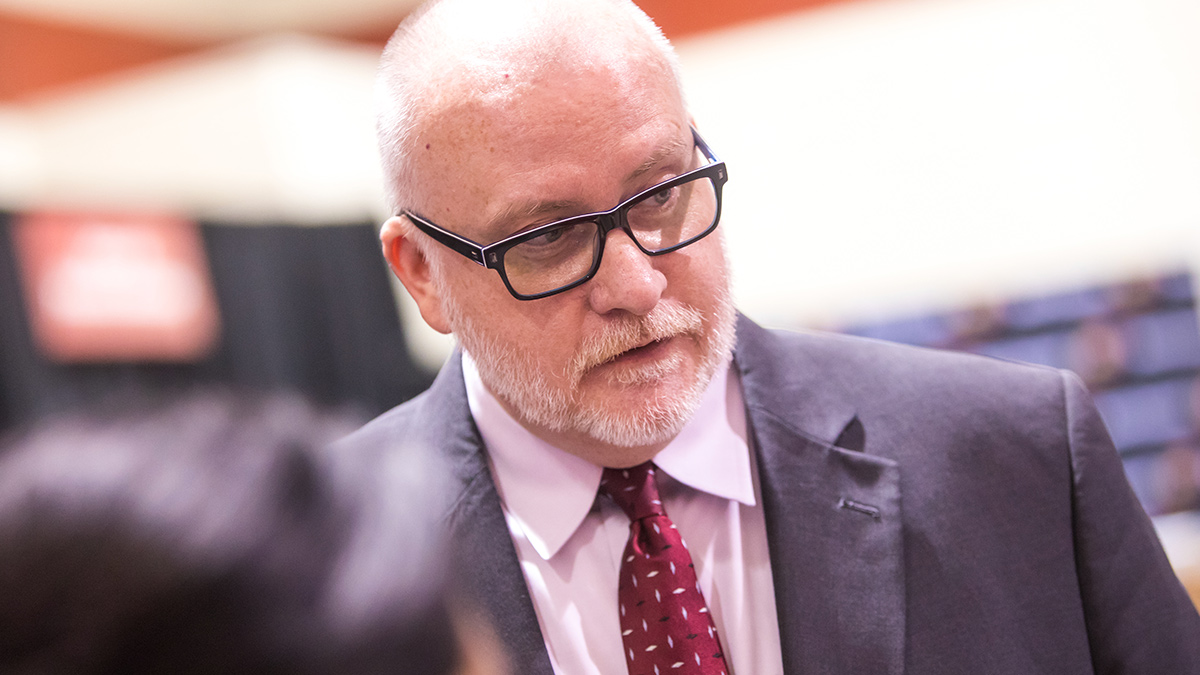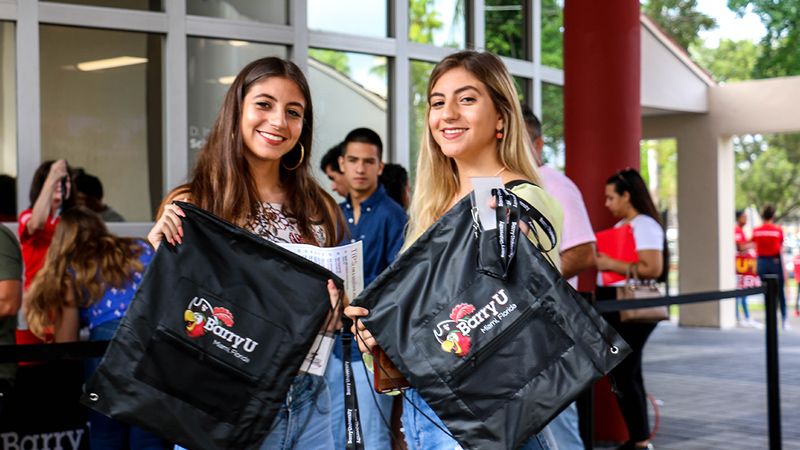- You should only provide accommodations to students who are registered with the OAS. You will know if a student is registered because the student will show you a copy of his/her OAS Accommodation Memo. You may make a copy of the Memo for your records.
- The Accommodation Memo does not reveal the nature of the student's disability, and you should not ask the student to disclose his/her disability. If the student tells you about his/her disability you must keep that information confidential.
- If you are asked to solicit for a note taker for a student because your student has that accommodation, the OAS will send you a letter suggesting how you may solicit for a note taker while maintaining confidentiality.
- If the student has been granted the accommodation of extra time for testing, or testing in a distraction-reduced environment, you may provide those accommodations yourself or have the OAS do it for you. If a student wants to take a test with the OAS, it is the student's responsibility to make a reservation with the OAS and give you a Faculty Testing Form to fill out and return to the OAS with the test. The OAS will return the test and the student's answers to you.
- Most students register for services with the OAS at the beginning of the semester. However, for various reasons some students register late. When this is the case, you should not provide accommodation retroactively. For example, students should not be allowed to repeat tests. The accommodations take effect on the day the Accommodation Memo shown/given to you.
- Aside from providing accommodations, you should treat the student with a disability exactly as you would any other student. There is no need to modify policies or take any other actions unless the modification or action were specified in the student's Accommodation Memo.
What are my Obligations to Students With Disabilities
Disability Etiquete
-
- A good guideline is to recognize that disabilities are like any other type of diversity. The norms you have about interfacing with someone of a different race, gender, sexual orientation, religion, and so forth, all apply to people with disabilities.
- People with disabilities are people first. Their disability should come second. Avoid identifying people by their diversity characteristic when it isn’t relevant. Just as you wouldn’t say, “The white guy,” you should avoid saying “The guy in the wheelchair.” Rather, try to describe the man as you would someone who does not have a disability. Emphasize his personhood and what you know about him. “The guy who sits in the front of the class and talks a lot about his travels in Latin America.”
- The word "handicap" is insulting to most people, and should be avoided. "Handicap" is derived from "cap in hand," a phrase associated with beggars and begging.
- Don’t attach catastrophizing words to a disability. Say “a person with a hearing impairment” versus “a person afflicted with a hearing impairment.”
- Sometimes using euphemisms like “visually impaired” annoy a person with a disability. They might actually prefer that you say “blind.” If you’re unsure, ask the person what terminology s/he prefers.
- When talking to someone with a disability, maintain eye contact.
- Talk directly to the person with the disability, even if he or she is using an interpreter. If parents or friends are present, encourage the person with the disability to express his/her own opinions.
- Don’t assume that someone with a disability needs help.
- It’s fine to ask someone if they would like help. If you notice that someone has a restricted range of motion, you can ask if s/he would like you to hand them something.
- Use a normal tone of voice. If the person cannot hear or understand you, he or she will most likely let you know.
- If you do not understand what the person with a disability is saying, you should say so. This will likely be appreciated. Ask the person to repeat or use an alternative phrase or write it down.
- Invite a person with a speech difficulty to join you in a quieter space so you can better hear him/her.
- When talking with a person who has an intellectual disability, speak simply, not loudly or as if s/her were a child.
- Be careful not to assume that a person with one disability also has others. A person who uses a wheelchair probably doesn’t have an intellectual disability.
- When first meeting a person with severe loss of vision, always identify yourself and introduce anyone else who might be present.
- When offering a seat to a person with a visual impairment, ask him/her how you can help (perhaps by placing her hand on the back or arm of the seat).
- People who use mobility devices like canes and wheelchairs and walkers typically consider their device a part of them. Be respectful of the person’s physical boundary. When talking with a person using a wheelchair, don't lean on the wheelchair.
- Don’t try to avoid using common idioms like "see," "walk" or "hear" around people with disabilities. Being overly conscious of a person's disability can cause discomfort and awkwardness.
- Avoid saying things like “you're such an inspiration…”
- Don’t use the large bathroom stalls that are reserved for people with disabilities.
- When in doubt, just treat the person the same way you would like to be treated.
- Many disabilities are “hidden” so it’s important to be sensitive in all communications. Don’t assume that if a disability isn’t obvious one doesn’t exist.
- If you have access to a car with a handicap sticker, but the person who needs the handicap parking space is not with you, don’t park in a handicap spot.
- A good guideline is to recognize that disabilities are like any other type of diversity. The norms you have about interfacing with someone of a different race, gender, sexual orientation, religion, and so forth, all apply to people with disabilities.
OAS Notification in Faculty Syllabi
-
- Any student who needs an accommodation based on the impact of a disability should contact the Office of Accessibility Services (OAS). The OAS phone number is 305-899-3488. The Office is located in Landon, room 102. You may also visit the OAS webpage.
- If you have a disability that may have an impact on your work in this class and you would like to have academic accommodations, please contact the Office of Accessibility Services (OAS). The OAS phone number is 305-899-3488. They are located in Landon, room 102. You may also visit their webpage.
- I encourage students with disabilities, including hidden disabilities such as chronic medical problems, learning disabilities, neurodevelopmental disabilities such a SLD or AD/HD, or psychiatric disabilities, to discuss appropriate accommodations with the Office of Accessibility Services (OAS). The OAS phone number is 305-899-3488. They are located in Landon, room 102. You may also visit their webpage..
- Any student who needs an accommodation based on the impact of a disability should contact the Office of Accessibility Services (OAS). The OAS phone number is 305-899-3488. The Office is located in Landon, room 102. You may also visit the OAS webpage.
How Do I Solicit for a Note Taker?
-
When a student in your class has been granted the accommodation of “Permission to have a note taker” the OAS requests that you facilitate this. To do so, please solicit for a volunteer from among the students in your class. Undergraduate note takers will earn Community Service hours for their assistance. If you prefer that someone from the OAS visit your class to ask for a note taker, please contact us.
Solicitation may be done is several ways. One approach is to make an announcement in class that a note taker is needed for a fellow student and students should see you after class to volunteer. Another option is to identify students you believe are strong note takers and approach them individually to request their services. Either way, it is imperative that you not identify the student with the disability by name or other recognizable characteristic. This practice allows the student with the disability to remain anonymous if they wish.
If the student who needs the note taker is open to being identified, please introduce the two students so they can decide how to proceed. If the student who needs the note taker does not wish to be revealed to the note taker, please tell the volunteer to contact the OAS (305-899-3488) or visit us (Landon room 102) so we may orient them to the processes involved in his/her volunteer service. If the student who needs the note taker is open to being identified, please introduce the two students so they can decide how to proceed.
May Students Have Animals in Class?
-
Service animals are those that have specialized training to do work or perform tasks for people with disabilities. Examples of such work or tasks include guiding people who are blind, alerting people who are deaf, alerting and protecting a person who is having a seizure, and calming a person with Post Traumatic Stress Disorder (PTSD) during an anxiety attack. Service animals are working animals, not pets. Service animals include Psychiatric Service Dogs, Seizure Response Dogs, and SSigDogs (sensory signal dogs or social signal dog). The Americans with Disabilities Act (ADA) sets the following regulations related to service animals:
- Service animals are permitted anywhere on the Barry University campus that his/her owner is permitted. That is to say that service animals may be in classrooms, eateries on campus, and so forth.
- Documentation of a service animal’s training or certification is not required.
- The OAS maintains a record of service animals on campus, and recommends that students with service animals register with Office so that, if necessary, we may help to advocate for the presence of the animal on campus.
- Service animals are permitted anywhere on the Barry University campus that his/her owner is permitted. That is to say that service animals may be in classrooms, eateries on campus, and so forth.
-
An ESA is a pet that provides therapeutic support or comfort to an individual who has a documented disability. The animal does not have to have specialized training, but must be able to alleviate one or more symptoms of a disabling condition. The Fair Housing Act (FHA) sets the regulations related to ESAs.
Following are the Barry University Office of Accessibility Services (OAS) policies for students who require an ESA:
- The student must be registered for services with the OAS at Barry.
- The student must provide to the OAS documentation from a healthcare provider stating that there is a connection between the student’s disability and the use of an ESA, and that the student will not be able to use and enjoy the residences at Barry if the animal is not permitted.
- ESAs are only allowed in the residence halls.
- The student must be registered for services with the OAS at Barry.
Checklist for ADA Compliance for Online Courses
View ChecklistUniversal Design
-
The first option on “Word Styles” is to make your text “normal.” If you click on a body of text and it has been coded as “normal,” the box on the “Word Styles” tab will be outlined. If not, simply highlight the text and click “normal” to achieve this. Afterwards, you may also change fonts and so forth if you wish.
-
Microsoft Word “Word Styles” lets you create a Title and three different levels of Heading. If you let Microsoft Word do this for you (as opposed to creating Heading and such on your own by changing font and bolding) a screen reader can navigate your document and recognize the structure of your text.
-
Instead of using your keyboard to make bullets and numbers, use the Microsoft Word menu to do this. Using pre-set formats like this will make document navigation easier.














